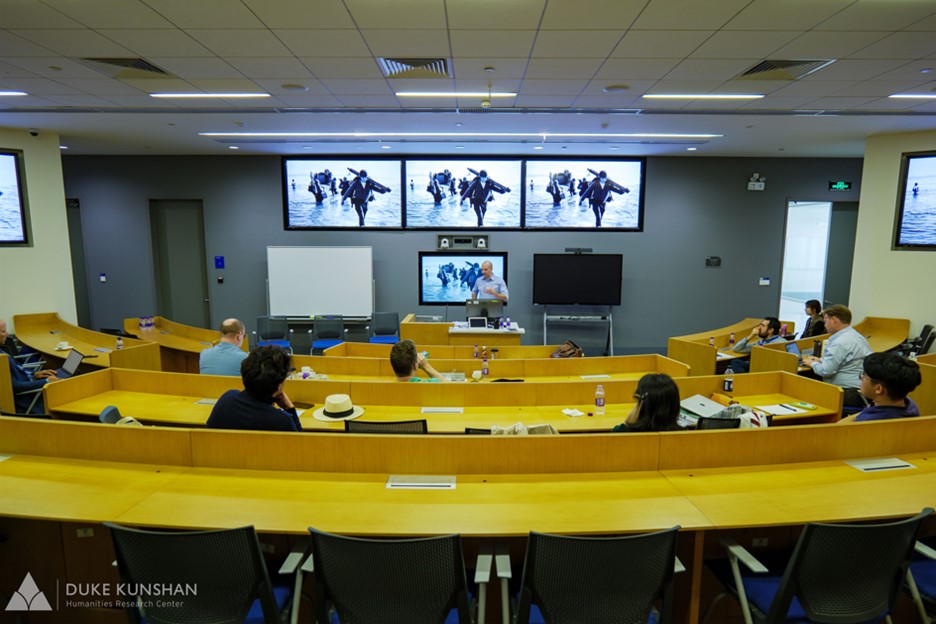Report By Yaxuan Wang, Class of 2027 & Photos by Ruixiang Hu, class of 2027

On October 11, 2024, DKU’s AB1079 was buzzing with discussions as around 15 faculty, staff, and students gathered for the US-China Relations Symposium. This event brought together a diverse group of scholars and students eager to dive into one of the most critical global relationships of our time. From deep historical analyses to cutting-edge geopolitical debates, the day was packed with engaging sessions that left everyone reflecting on the complexities of Sino-American dynamics.
Opening and Morning Research Presentations
Prof. Erez Manela from Harvard University began the morning session with an exploration of how racial equality movements following WWII influenced global diplomacy, particularly in the context of US-China relations. His insights into the role of racial dynamics within international organizations sparked a lively conversation among attendees.
Shifting focus to China’s internal strategies, Prof. Peter E. Hamilton of Lingnan University examined the country’s adoption of scientific management post-1978. He highlighted how these management practices contributed to China’s economic rise and their continued influence on international relations today.
Offering a different angle, Prof. Ivan Willis Rasmussen from NYU Shanghai challenged the common narrative of a “New Cold War” between the US and China. His thought-provoking take invited the audience to reconsider whether this term accurately describes the current geopolitical situation.
As the only Chinese speaker here, Prof. Ariel Shangguan of Xi’an Jiaotong-Liverpool University delved into the epistemological differences between the two nations, exploring how contrasting approaches to knowledge shape policy-making. Her talk encouraged reflection on the deep-rooted cultural distinctions that impact global relations.
Turning the conversation towards the Middle East, Prof. Gürol Baba from the Social Sciences University of Ankarahighlighted China’s expanding influence in the region. He drew comparisons between China’s diplomatic efforts and the US’s traditional dominance, particularly focusing on China’s role in brokering Saudi-Iran relations.
Closing the session, Prof. Zach Fredman from Duke Kunshan University provided a historical perspective, focusing on US military rest and recreation during the Vietnam War. His analysis uncovered the often-overlooked effects of military policy on US-Asia relations, adding a unique historical layer to the day’s discussions.
Afternoon Discussions and Workshops
After lunch, the event moved into more interactive sessions. During the syllabus workshop, faculty discussed ways to improve how US-China relations are taught, with an emphasis on making the curriculum more interdisciplinary. There was a lot of excitement as professors shared ideas on how to bring fresh perspectives into the classroom. The following pedagogy session focused on connecting academic learning with real-world experiences. Professors shared examples of integrating current events, internships, and co-curricular activities into their teaching, sparking practical discussions on how to make learning more dynamic.
Wrap-Up and Reflections
By the end of the symposium, participants left with a sense of accomplishment and curiosity. The discussions had raised more questions than answers, highlighting the complexities of US-China relations. The event showcased the dedication of both faculty and students to understanding this vital relationship, making it a memorable and thought-provoking day.
Special thanks go to all the professors, students and the workers whose contributions made this symposium a success.